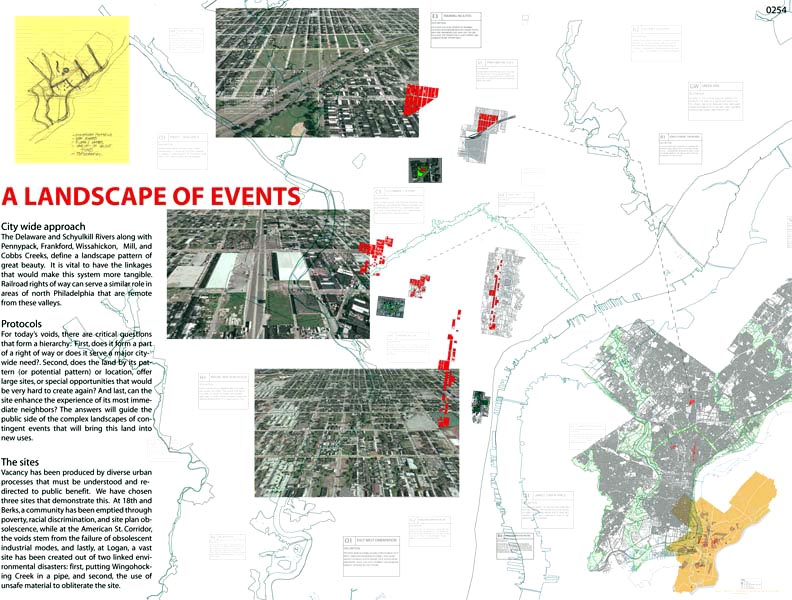
City
wide approach
The Delaware and Schuylkill Rivers along with Pennypack,
Frankford, Wissahickon, Mill, and Cobbs Creeks, define a landscape pattern of
great beauty. It is vital to have the linkages that would make this system more
tangible. Railroad rights of way can serve a similar role in areas of north
Philadelphia that are remote from these valleys.
Protocols
For today’s voids, there are critical questions
that form a hierarchy: first, does it form a part of a right of way or does
it serve a major city-wide need? Second, does the land by its pattern (or potential
pattern) or location, offer large sites, or special opportunities that would
be very hard to create again? And last, can the site enhance the experience
of its most immediate neighbors? The answers will guide the public side of the
complex landscapes of contingent events that will bring this land into new uses.
The
sites
Vacancy has been produced by diverse urban processes that
must be understood and re-directed to public benefit. We have chosen three sites
that demonstrate this. At 18th and Berks, a community has been emptied through
poverty, racial discrimination, and site plan obsolescence, while at the American
St. Corridor, the voids stem from the failure of obsolescent industrial modes,
and lastly, at Logan, a vast site has been created out of two linked environmental
disasters: first, putting Wingohocking Creek in a pipe, and second, the use
of unsafe material to obliterate the site.